Greener, cheaper, healthier: How my family went zero-waste, and how you can too
One resolution for us in the summer five years ago, led to longtime changes almost over night, if we can do it so can you, a greener cheaper life starts here, writes Kate Hughes

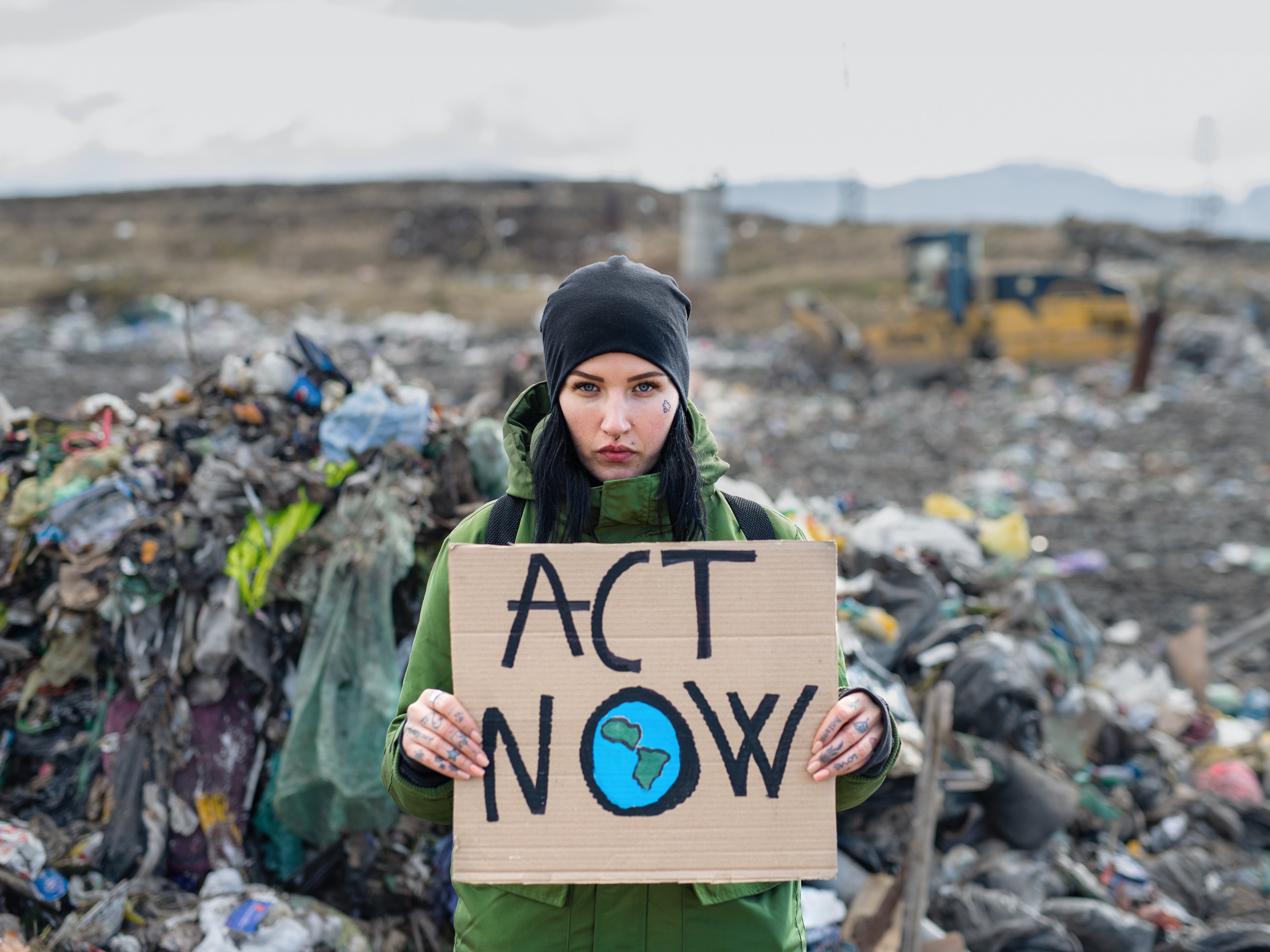
When I open the front door there’s a man in a high vis outside taking photographs of our house. I ask if I can help him with something, he answers that he is taking a photo of the pavement. Or rather the lack of a bin on the pavement.
It’s the first collection day after Christmas and up and down our street, the engorged bins and tumbling recycling boxes are overwhelming the narrow gap between the houses and the road. It turns out the man was part of the collection team, taking photos where no bins had been left out in case of complaint that they hadn’t been emptied. I explained that we haven’t taken out the bins for almost five years. He looked at me as if I were mad.
I guess most people look at us slightly sideways when we admit we don’t have a bin, as if we’re the next subjects of a Channel 5 hoarding documentary.
We’re not. The reason there isn’t any waste coming out of our house is that none goes in to start with. And not just when we’re at home. The aim is that our little family of four, including two small kids, doesn’t create any waste, anywhere, ever.
Resolution
After a year in which the reality of our climate emergency clubbed our communal awareness over the head in no uncertain terms, it’s little surprise that 40 per cent of us have made new year’s resolutions to be greener.
It seems millions of Brits will be cutting back on meat intake, taking shorter showers and always leaving the house with reusable water bottles in 2022, according to a survey for British Gas last week. And this time, we’re determined to see our resolutions through – changing one thing this week, overnight but for the long haul.
We went “zero waste” overnight too – not on the first day of January though, but in the middle of the summer.
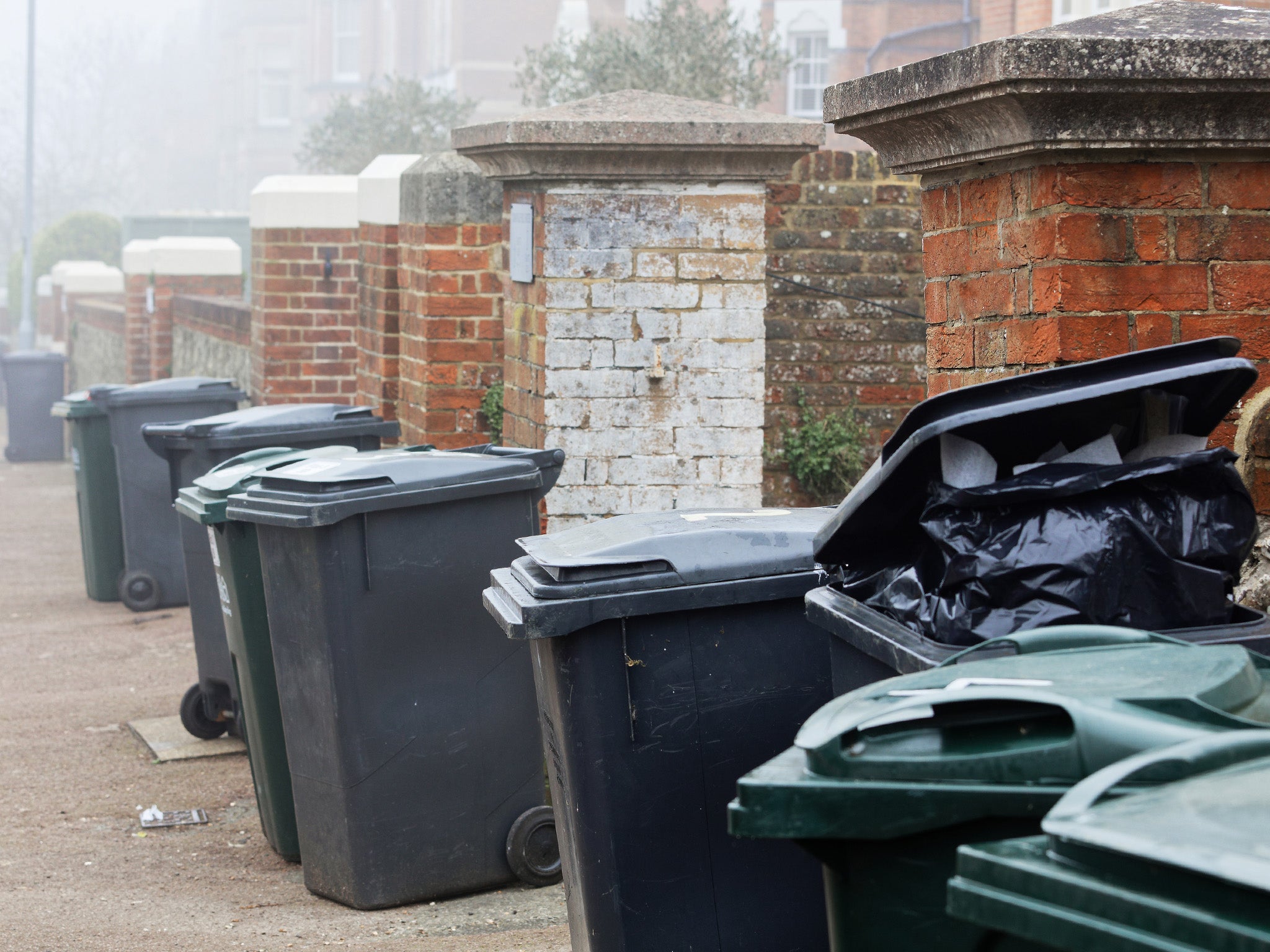
It started one afternoon when I put my foot through a polystyrene-filled bean bag in our little back garden. The tiny balls went everywhere instantly – down the drain, into the kids’ hair, over the soil. I spent hours trying to scoop them all up but I now know there will be polystyrene under the gravel and in the soil and in the water system for thousands of years – because of me.
It was a total non-event in the grand scheme of things, but it showed us in absolute, immediate and highly visual terms what our casual, everyday decision-making was doing to our environment.
That’s the killer. None of us are trying to destroy the planet we depend on for every aspect of life. That would be suicidal. What we are doing is simply going about our lives, using learned behaviours that have become mainstream only in the last 50 or 60 years at most.
Shampoo and shower gels in plastic bottles and laden with everything from palm oil to toxic perfumes had been easily and quickly replaced with solid soap bars
It’s now clear that many of those casual, accepted, subconscious habits have catastrophic effects – whether that’s on the other side of the world or literally in our own backyards.
This life
Ours is an ordinary family living an ordinary life from a semi-detached house in a small town. We had always been rather standard in the ways we shopped, ate and spent our time and money.
It took three months to retrain our brains and behaviours, with the biggest challenges undoubtedly around food – not simply how it was packaged, but what exactly it was, where it came from, how it was produced and what we did with the remnants afterwards.
Out went anything pre-made, from ready meals to shop bought bread, along with things like crisps, most chocolate and snack bars, desserts, cakes, supermarket-bought cheese, meat, yoghurt, the list felt endless.
In fact, we quickly gave up the supermarket shop altogether, so few were the items we could buy in them that didn’t have a plastic component.
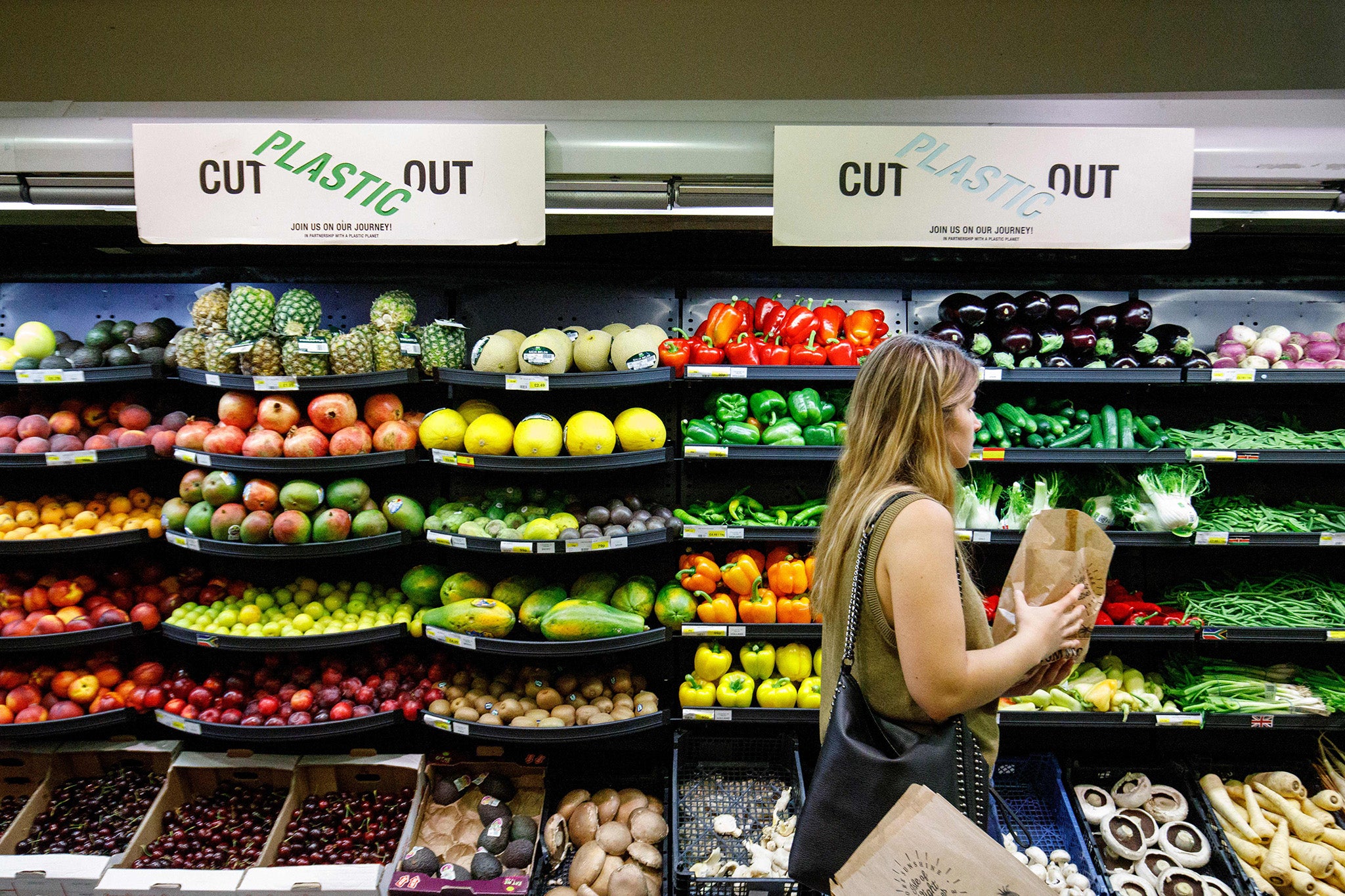
These days supermarkets are slowly improving their plastic use. But the 10 biggest retailers are still producing more than 800,000 tonnes of plastic waste a year.
Figures from Greenpeace suggest that while they’re all jumping on the sustainability bandwagon these days, some of the biggest household names have barely made a dent in their plastic packaging reduction in the past year.
That’s despite the fact that some experts suggest supply chain disruption and panic buying in the first months of Covid helped accelerate the shift from single-use plastic to alternative materials after some components became unobtainable.
Back in 2017 though, few high street stores were bothering to try at all, so, as we switched to cooking everything from absolute scratch, so we started buying dry goods like flour and oats in huge paper sacks which created a few storage nightmares in our already cramped kitchen.
Milk – then cow’s, now oat – started turning up on our doorstep in glass bottles again like it once had when I was a kid. For everything else we started handing over glass and metal containers at counters and on stalls.
More than a few acerbic comments were handed back with our purchases, but we were also saving a fortune by this point. Our grocery bills are still around a third lower than they were before what we now describe as “beanbag day” – not least because we aren’t paying middlemen to chop up our lettuce for us any more.
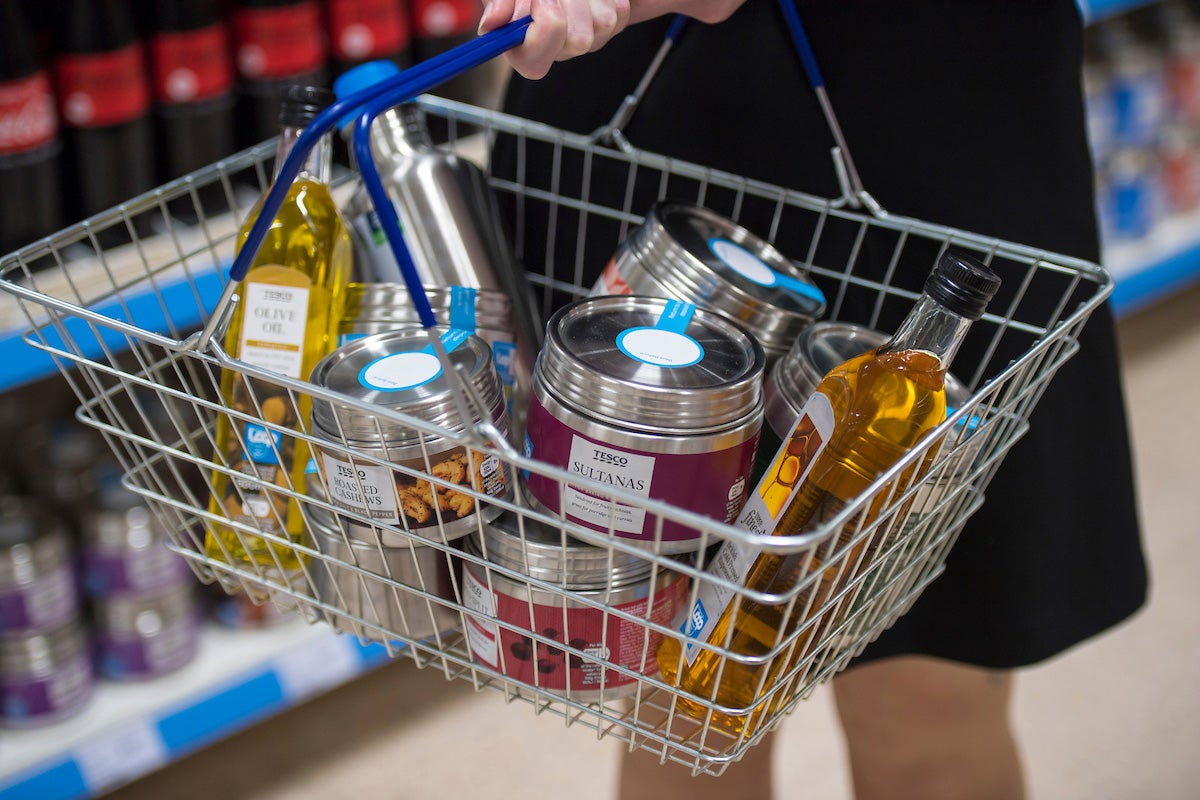
The food itself changed dramatically too as we almost automatically turned towards a plant-based diet with a growing focus on local, seasonal ingredients whose production is as light on resources like water as possible. Around here the easiest food to get your hands on cheaply and widely without plastic is veg.
Portion sizes plummeted, plates are religiously cleared and leftovers have gained leverage. All of which meant that our weight, and our food bills, have stayed down even after we pushed the boat out for organic produce to help reduce our impact a bit more.
Something in the water
Meanwhile, as we’d been wrestling with a different kind of food shop, the last of the pre-beanbag day stock of nappies had been used up by our youngest child – a newborn when we decided to throw in the plastic towel.
Haunted by the stories of smelly pails and terrifyingly large safety pins from our own babyhoods, we were nervous about switching to reusables. But it turns out the world has moved on since the 1980s and I’m still kicking myself that we didn’t even glance at cloth nappies for child number one. What a lot of waste and money it would have saved.
Disposable nappies were the last things that went in our bin. The rest of the bathroom paraphernalia was long gone. Shampoo and shower gels in plastic bottles and laden with everything from palm oil to toxic perfumes had been easily and quickly replaced with solid soap bars.
Razors are metal, as are our toothbrushes – with wooden replaceable heads and plant-based bristles so we don’t have to use up quite so much material each time we need a refresh. Instead of plastic-based single-use wet wipes, the kids are scrubbed at with squares of cut up old towel dipped in a flask of water. They go in the wash afterwards rather than into landfill or, worse, down the toilet. (The squares of towel that is, not the kids.)
We delved into making our own cleaning products from reassuringly familiar items like distilled white vinegar and bicarbonate of soda. Which had the added bonus of ensuring that no child in our house would come to harm by discovering bleach or other alarmingly fatal substances under the sink – there aren’t any.
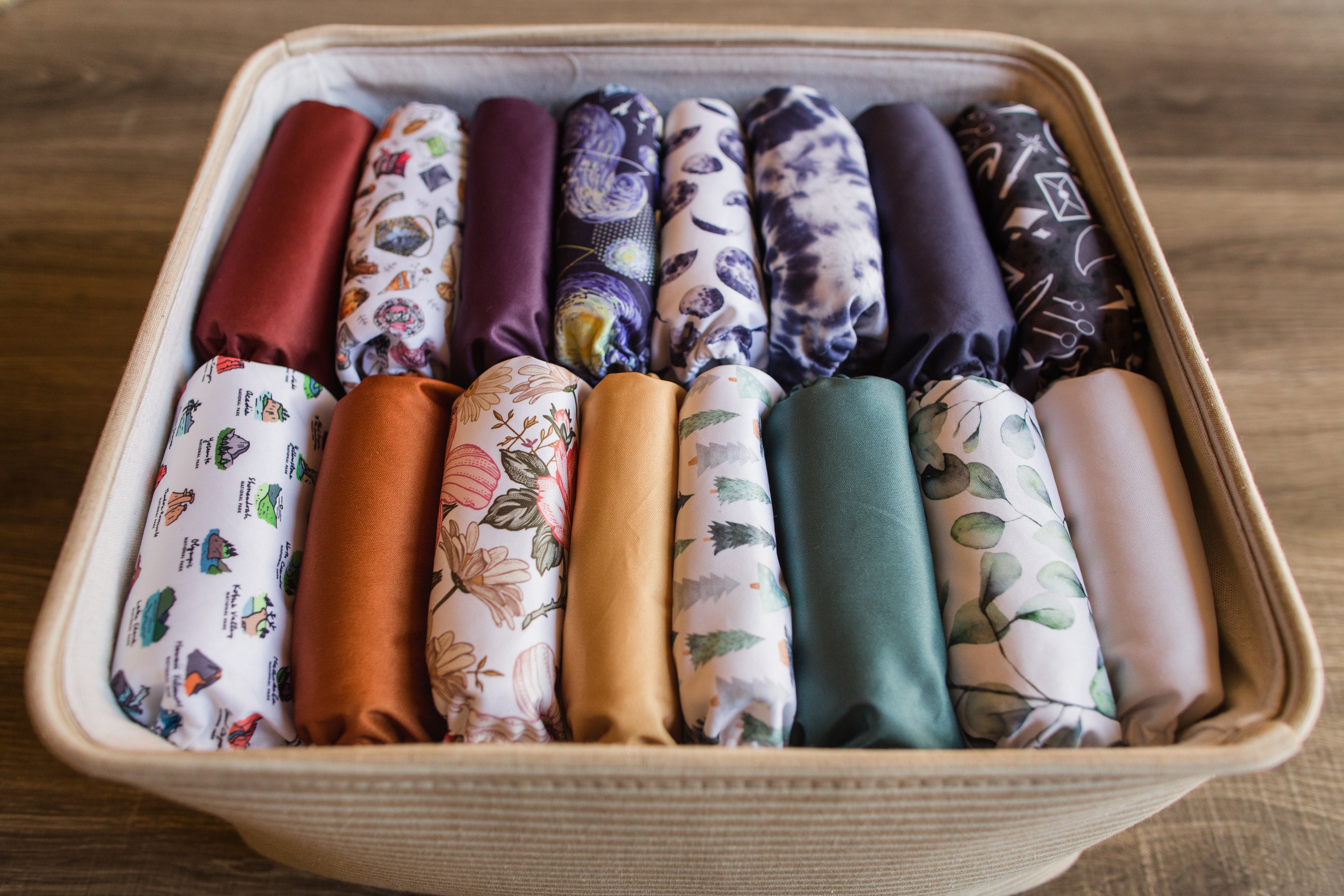
Sure, the house occasionally took on a slight chip-shop aroma until we got to grips with the recipe, but it was slowly dawning on us that ditching plastic offered more than a bit more space where the bin used to be.
Cleaner air was one of those benefits as we moved away from the kind of cleaning products that contain volatile organic compounds (VOCs) as well as ammonia and bleach. The British Lung Foundation warns that: “products containing VOCs, particularly those in a spray, can cause irritation to your lungs and may increase your risks of developing an allergy or asthma.”
They’re found in things like air fresheners, furniture polish, carpet cleaners and washing detergents. That last one is an environmental disaster in its own right anyway with phosphates in them causing devastating algal blooms that suffocate life and surfactants reducing the surface tension of water, making it more prone to pollutants like pesticides.
All of a sudden we were turning our attention to our relationship with water, the quantity we used and what was swilling away once we were done. What had started as a straightforward war on single-use plastic was snowballing fast.
Synthetic clothing had already been ditched as part of the plastic ban if we could help it, and where we can’t – the kids’ school uniforms – clothing is washed very gently in cold water and from inside a laundry bag designed to capture a decent chunk of the 700,000 microplastics produced from a typical washing cycle that go on to cause havoc in our rivers, oceans and seas.
I’m not for a second suggesting we live in some pure white minimalist cell here, but I am saying I can see all the way under our bed.
The number of washes dropped off too as we reinstated the spot cleaning and sniff tests of our student days to help cut our water use, all of which meant the wear and tear on our clothes dropped and we found ourselves buying fewer clothes. They, and everything else – aside from underwear and mattresses – is now bought second hand.
Around 40 per cent of us have resolved to be more green in 2022 to help reduce our costs, according to that British Gas survey. A similar proportion think their green resolutions will be good for their health. From our experience so far, both camps are right.
We hadn’t really been expecting those effects when we adopted a zero-waste lifestyle though – or the other knock-ons that have arisen since.
We haven’t flown for years, for example, and our small car has been electric since 2018. Our utilities and bank accounts and insurance and pensions are now managed by a different raft of companies that aren’t funding destructive industries.
With a new set of purchasing criteria as long as my arm, and a refocus on the intrinsic value of resources, the amount of stuff we have has naturally dropped off too. I’m not for a second suggesting we live in some pure white minimalist cell here, but I am saying I can see all the way under our bed.

Now what
By the end of 2021 the world was awash with zero waste books, TED talks and how-to YouTube guides to help you get your head round a different way of looking at the resources we use every day. Ignore the self-titled Instagram eco experts though because change is an imperfect process – as is maintaining it.
We continue to retrace, reassess and sometimes change a decision or approach as we find out more, or new information comes to light or, very, very occasionally, a new technology offers a new solution – though relying on the promise of innovation without fundamental change is clearly not the way out of the climate crisis.
Some things just haven’t worked out yet either. Our aim this coming year is to successfully grow our own food after abysmal failures so far due to everything from time constraints to tomato blight. It’s part of a bid to stamp out the last of our recycling needs.
With massive issues around how and where in the world our waste is recycled, it is not the panacea we believe it to be. And anyway, all those full recycling boxes on the pavements this week shouldn’t fool you – we recycle less than half our waste.
So that’s my resolution for 2022 – to finally go recycling free. It will be the latest in a series of steps that has changed and continues to change everything from what we eat to how we vote. But if someone had told me in 2017 that putting my foot through a beanbag would start a chain reaction that would leave no aspect of our family life unaltered, I would have run for the hills.
We were – still are – busy with young kids and more than full-time jobs. We didn’t have time to hurl a grenade into a day-to-day life and logistics we sometimes felt we were barely hanging on to as it was.
But like millions of people have this week, we changed one thing one day that jump-started the most unexpectedly empowering of processes. Above all though, if 2021 has shown us anything, it is that we’re far from alone.
Going Zero: One Family’s Journey to Zero Waste and a Greener Lifestyle by Kate Hughes is available to pre-order ahead of release on 3rd March 2022




Join our commenting forum
Join thought-provoking conversations, follow other Independent readers and see their replies
Comments